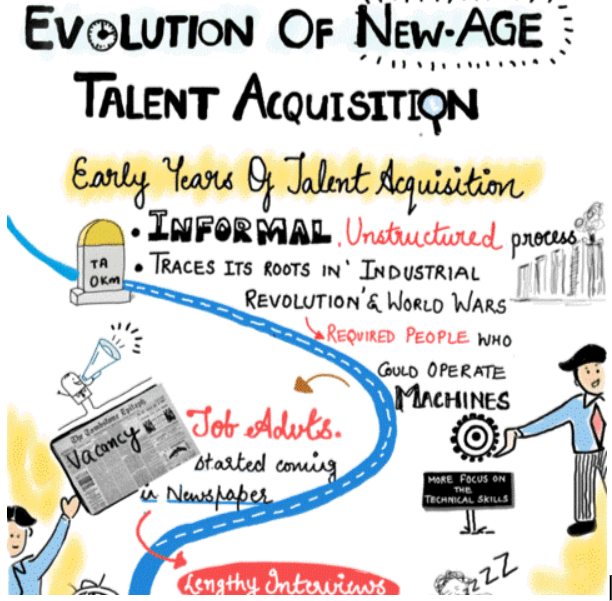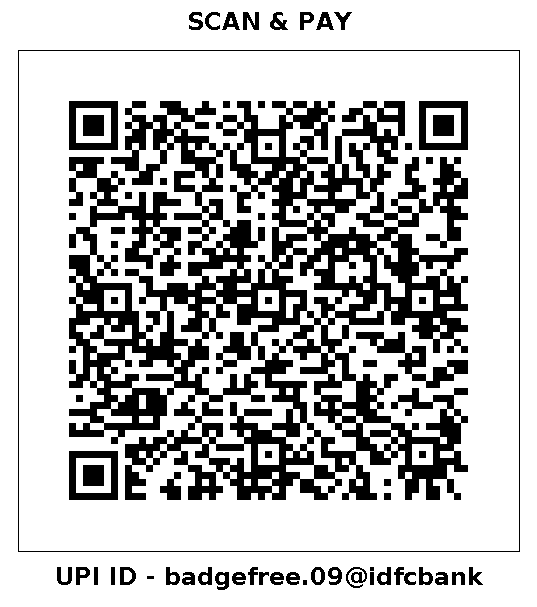Talent acquisition, once a rudimentary process focused on filling job vacancies, has undergone a remarkable evolution over the past century. From the early 1900s to the current time, the landscape of talent acquisition has been shaped by societal changes, technological advancements, and shifts in business strategies. This article delves into the transformative journey of talent acquisition across the globe, tracing its evolution from its humble beginnings to its present-day complexity.
Early 20th Century: Birth of Recruitment
The early 20th century marked a pivotal point in the history of talent acquisition. The world was undergoing industrialization, and with it came the need for a skilled and productive workforce. The birth of formalized recruitment practices can be traced back to this era. However, the concept of recruitment was relatively straightforward compared to the intricate processes of today.
Newspaper advertisements and word-of-mouth referrals were the primary means of attracting potential candidates. Organizations sought individuals with specific skills to meet the requirements of burgeoning industries. The process was often reactive, driven by immediate hiring needs and the availability of candidates within close proximity to the company’s location.
Mid-20th Century: Focus on Efficiency
As the mid-20th century dawned, efficiency emerged as a driving force in the world of talent acquisition. The rise of large corporations and expanding industries necessitated a more structured approach to hiring. Personnel departments, which would later evolve into HR departments, became commonplace in organizations.
This era saw the implementation of structured selection processes. Aptitude tests and structured interviews were introduced to assess candidates more comprehensively. The goal was to ensure a better alignment between candidates’ skills and organizational requirements. The hiring process began to focus not only on finding suitable candidates but also on optimizing the efficiency of the entire procedure.
Late 20th Century: Diversity and Equal Opportunity
The latter half of the 20th century witnessed a significant shift in societal norms, which in turn impacted talent acquisition. Civil rights movements and changing attitudes towards diversity and equal opportunity began to influence hiring practices. Organizations became more conscious of the need to promote fairness and equality in the workplace.
Governments around the world introduced laws and regulations aimed at combating discrimination in hiring practices. This marked the beginning of affirmative action initiatives and strategies to promote diversity among candidates. Talent acquisition evolved to consider not only skills and qualifications but also the importance of creating an inclusive and representative workforce.
Digital Revolution: The 21st Century Game Changer
The dawn of the 21st century brought about a seismic transformation in the field of talent acquisition – the digital revolution. With the widespread adoption of the internet, the way organizations sought, engaged, and communicated with candidates underwent a revolutionary change.
Job boards, professional networking sites, and social media platforms emerged as essential tools for recruiters. Suddenly, organizations had access to a global pool of candidates, breaking down geographical barriers and opening new avenues for talent acquisition. The process of attracting and engaging candidates became dynamic and real-time, shifting from a local to a global landscape.
Personalization and Employer Branding
In the early 2000s, a new focus emerged in talent acquisition – personalization and employer branding. Organizations recognized that attracting top talent required more than just job listings. It was about creating a unique identity and appealing to candidates as more than just job seekers.
Employer branding became a cornerstone of talent acquisition strategies. Companies began showcasing their culture, values, and growth opportunities to potential candidates. Organizations understood that candidates were not just employees; they were potential brand ambassadors who could play a crucial role in shaping the company’s image.
Data-Driven Decisions
As the 21st century progressed, the emergence of big data and analytics revolutionized talent acquisition once again. The availability of vast amounts of data enabled organizations to make more informed decisions about their recruitment strategies. Predictive analytics, AI-powered tools, and applicant tracking systems became integral to the process.
Data-driven talent acquisition helped recruiters identify suitable candidates more efficiently and reduce biases in the hiring process. Insights from data analytics provided valuable information about the effectiveness of various sourcing channels, the quality of hires, and the potential for long-term success within the organization.
Remote Work and Virtual Recruitment
The year 2020 brought an unprecedented global crisis – the COVID-19 pandemic – which profoundly impacted the world of work and talent acquisition. The sudden shift to remote work and the need for physical distancing necessitated a complete rethinking of traditional hiring practices.
Organizations swiftly adopted virtual recruitment strategies. Video interviews, virtual job fairs, and digital onboarding processes became the new norm. While the circumstances were challenging, this period accelerated the adoption of technology in talent acquisition, pushing organizations to find innovative ways to maintain engagement and connection with candidates.
Current Landscape: A Holistic Approach
In the present day, talent acquisition has evolved into a comprehensive and multifaceted practice. It is no longer confined to merely finding candidates with the right skills. The focus has shifted to creating a holistic employee experience that encompasses every touchpoint – from the first interaction to onboarding and beyond.
Organizations recognize that talent acquisition is about identifying candidates who not only possess the skills required for a specific role but also align with the company’s culture, values, and long-term goals. Soft skills, adaptability, and the ability to thrive in a rapidly changing environment have become as important as technical competencies.
The Ongoing Evolution
The journey of talent acquisition across the globe, spanning from the early 1900s to the current time, is a testament to the resilience and adaptability of organizations. What began as a basic hiring process has evolved into a sophisticated and dynamic practice that is influenced by societal shifts, technological advancements, and a deep understanding of human behavior.
As the business landscape continues to evolve, so too will talent acquisition. It will remain a dynamic field, shaped by ongoing societal changes, emerging technologies, and innovative strategies. The key to success lies in embracing these changes, maintaining a human-centric approach, and always staying ahead of the curve. The evolutionary journey of talent acquisition is far from over; it is a continuous process of growth, innovation, and refinement that will shape the workforce of the future.
The future of recruiting is expected to be significantly different from the historical practices outlined above. Several key trends and shifts are likely to shape the future of recruiting:
- Advanced Technology and Automation: The role of technology, including artificial intelligence (AI) and machine learning, will continue to expand. Automated resume screening, chatbots for candidate interactions, and predictive analytics for identifying top talent will become more prevalent. This will lead to greater efficiency in the early stages of recruitment.
- Data-Centric Decision-Making: Data-driven recruiting will become the norm. Recruiters will rely on big data and analytics to make informed decisions about sourcing, candidate assessment, and hiring strategies. This approach will help reduce bias and improve the quality of hires.
- Virtual and Remote Recruiting: The experience gained during the COVID-19 pandemic has accelerated the acceptance of remote work and virtual recruitment. Video interviews, virtual job fairs, and digital onboarding will continue to be integral parts of the recruitment process. Geographical boundaries will matter less as organizations tap into global talent pools.
- Diversity, Equity, and Inclusion (DEI) Focus: DEI initiatives will remain a top priority in recruiting. Employers will actively seek ways to create inclusive and diverse workforces. This will involve not only sourcing diverse talent but also fostering an inclusive culture.
- Skills-Based Hiring: Rather than solely relying on traditional qualifications and degrees, recruiters will focus on skills-based hiring. Skills assessments, competency-based interviews, and micro-credentialing will gain importance as candidates are evaluated based on their abilities to perform specific job tasks.
- Personalization and Candidate Experience: Employer branding and personalization will continue to play a crucial role. Companies will invest in creating unique employer brands and enhancing the candidate experience. Candidates will be treated as potential brand ambassadors, and their interactions with the organization will be carefully curated.
- Continuous Learning and Adaptability: As the world evolves rapidly, adaptability and continuous learning will be highly valued in candidates. Employers will seek individuals who can thrive in a dynamic environment and quickly acquire new skills as needed.
- Global Talent Mobility: Cross-border recruiting will increase, with organizations tapping into international talent pools. Remote work and digital collaboration tools will facilitate the hiring of candidates from different countries.
- Hybrid Work Models: Hybrid work models, combining remote and in-person work, will influence recruiting strategies. Employers will look for candidates who can thrive in such flexible work arrangements.
- Environmental and Social Responsibility: Candidates will increasingly consider an organization’s environmental and social responsibility in their job decisions. Companies with strong sustainability practices and social impact initiatives will attract talent.
In summary, the future of recruiting will be characterized by advanced technology, data-driven decision-making, virtual and remote practices, a focus on diversity and inclusion, skills-based hiring, and a heightened emphasis on candidate experience. The ability to adapt to these evolving trends will be crucial for both recruiters and candidates as they navigate the changing landscape of talent acquisition.
Blog Writer:
Kriti Sharma
Young HR Talent Reformer, badgefree





